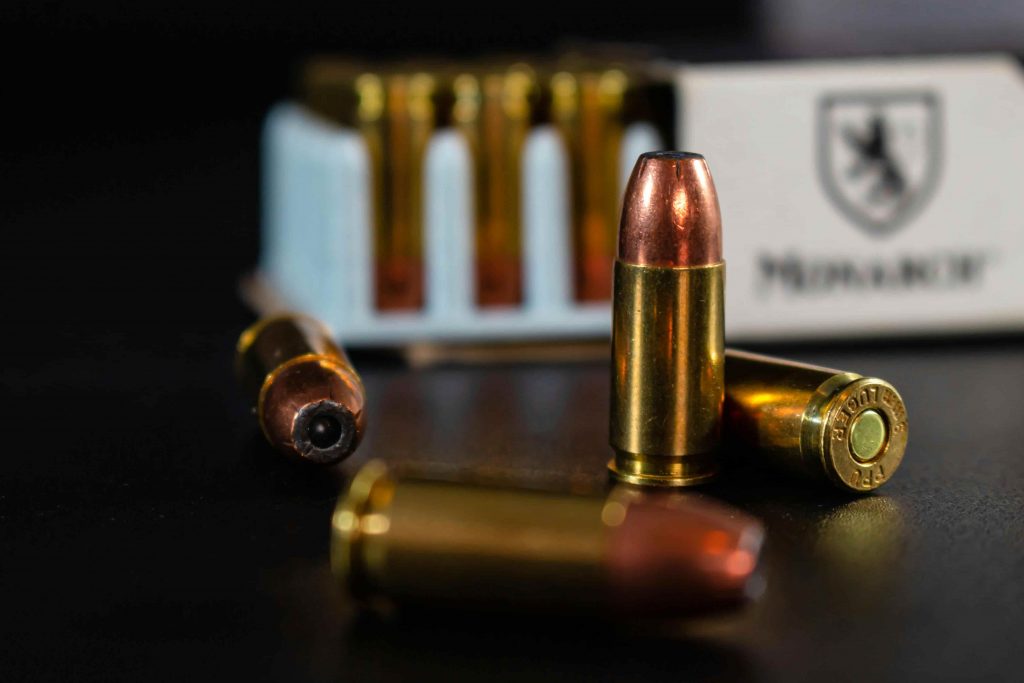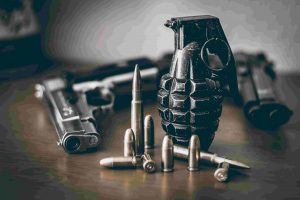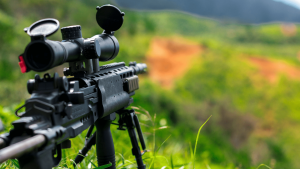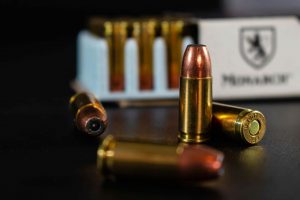Navigating the World of Used Firearms for Hunters and Enthusiasts

Whether you’re a seasoned hunter, a firearm enthusiast, or a first-time buyer, purchasing used firearms can be an exhilarating experience. Not only can it offer significant cost savings, but it also provides access to a wide array of rare and vintage models that new catalogs simply don’t cover. However, the process requires a keen understanding of what to look for, legal stipulations, and the best places to make your purchase. This guide is here to shed light on these aspects and ensure that your venture into buying used firearms is both informed and rewarding.
Understanding the Importance of Buying Used Firearms
Buying used firearms is becoming a popular choice among hunters and firearm aficionados. Why? Because it combines practicality with the thrill of discovering history-rich pieces. However, it’s crucial to approach this venture with the right information. Knowing the ins and outs of the market helps you avoid pitfalls and ensures you make wise purchasing decisions.
The world of used firearms is wide and varied, offering everything from barely-used contemporary models to antique firearms with storied pasts. Each purchase has a story, which can be a fascinating attraction for many buyers. But, it requires insight to distinguish a good deal from a potential money pit, especially when considering the condition and history of the firearm.
This guide aims to equip you with the knowledge needed to traverse the used firearms marketplace. From evaluating condition and price to understanding legal requirements, every facet of purchasing a used firearm will be explored to help you make the most informed decision possible.
Factors to Consider When Buying Used Firearms
Condition Matters
The first thing to scrutinize in a used firearm is its condition. Look beyond the surface to understand the true state of the gun. Examine the barrel for rust or pitting, which can indicate poor maintenance. Check the stock for cracks, and ensure the action cycles smoothly. These are signs of how the firearm was cared for and can hint at its longevity.
Red flags include excessive wear in crucial components like the trigger group or safety, which may necessitate expensive repairs. Additionally, ensure that any factory modifications have been professionally executed. An amateur attempt at customizing a firearm can significantly affect its safety and performance.
In short, prioritize the condition over aesthetics. A firearm that looks great on the outside but is flawed internally can lead to disappointing performance and costly repairs.
Evaluating Price
Determining a fair price for a used firearm can be tricky, hinging on various factors such as make, model, age, and condition. Price guides and online platforms can provide ballpark figures for different firearms, but real-world prices vary. It’s essential to compare listings from multiple sources.
Be wary of deals that seem too good to be true. A surprisingly low price might mean the firearm has hidden issues. Conversely, don’t shy away from negotiating if you believe the asking price is too high. Sellers often expect some haggling and may be willing to come down.
To ensure you’re paying a fair price, research similar models sold recently and consider the condition of the gun in question. This way, you can confidently approach negotiations with a sound understanding of its worth.
Age and History Insights
The age and history of a firearm can significantly affect its value and desirability. Older models might have unique features or represent historical significance, making them highly sought after by collectors. Determining a firearm’s age can be done by checking serial numbers against manufacturer databases.
Understanding a gun’s history can reveal information about its usage and maintenance, which is crucial for assessing its reliability. Previous owners might have records of service or modifications that can provide insight into its current state and performance.
A clear history not only adds to the narrative of the firearm but also provides peace of mind regarding its functionality and compliance with regulations.
Legal Requirements for Buying Used Firearms
Navigating the Legal Process
Understanding the legalities involved in purchasing a used firearm is essential. Laws vary by state and country, but typically involve background checks and transfer paperwork. Familiarize yourself with local regulations and ensure all required documents are completed correctly.
Start by obtaining the necessary licenses or permits before purchasing. This often includes a background check to ensure compliance with federal and state laws. In private sales, both parties must adhere to the same legal standards as commercial sales.
Avoiding legal pitfalls requires diligence. Keep copies of all paperwork and confirm the transfer is logged correctly with the relevant authorities to safeguard against future legal issues.
Ensuring a Smooth Transaction
To ensure a smooth transaction, both buyer and seller must follow the legal procedures to a tee. Verify the seller’s credentials and confirm they have the right to sell the firearm. This protects you from inadvertently purchasing a stolen or otherwise illegal gun.
Utilize licensed firearm dealers (FFLs) to facilitate the transfer. They can mediate the exchange, ensuring all legal requirements are met. This step adds an additional layer of security and legality to your transaction.
Communicate openly with the seller about each party’s responsibilities. Clear understanding and agreement on the process prevent misunderstandings and ensure a seamless transaction.
Where to Buy Used Firearms
Exploring Online Marketplaces
Online marketplaces offer vast selections and convenience but require caution. Sites like GunBroker and Armslist connect buyers and sellers across the country. They provide an opportunity to compare prices and find specific models that may not be available locally.
However, online purchases often lack the ability to inspect the firearm in person before committing. To mitigate this risk, research the seller’s reputation through reviews and ratings. Reputable sellers are more likely to provide accurate descriptions and resolve any issues post-sale.
Leveraging escrow services can add another layer of safety, ensuring funds are only released once the firearm is received and inspected.
Local Gun Shops and Shows
Local gun shops and gun shows offer the advantage of in-person inspections. Here, you can physically handle the firearm, check its condition, and speak directly with knowledgeable sellers. They can provide valuable insights and advice tailored to your needs.
Gun shows are vibrant events where you can explore a wide range of firearms and accessories, often at competitive prices. Engaging directly with sellers can also lead to better deals and foster connections within the firearms community.
Building relationships with local shop owners can lead to exclusive deals and early notifications of new inventory, enhancing your buying experience.
Weighing the Pros and Cons
Each buying option has its advantages and disadvantages. Online marketplaces offer variety and convenience but require vetting to ensure safe transactions. Local shops provide hands-on experience and personalized service but may have limited selections.
Consider what matters most to you—convenience, selection, or assurance of quality—and choose the option that aligns with your priorities. Often, a combination of both resources provides the best results by leveraging the strengths of each.
Ultimately, the choice depends on your comfort level with the purchasing process and your specific needs as a firearm buyer.
Safety and Security Measures
Importance of Proper Storage
Proper storage is critical to ensuring the safety and longevity of your firearm. Invest in a high-quality safe or lockbox that prevents unauthorized access and protects the gun from environmental damage.
Legally, certain jurisdictions require firearms to be stored securely. A locked cabinet or gun safe not only complies with these regulations but also provides peace of mind knowing your firearms are safe from theft or misuse.
Additionally, proper storage extends the life of your firearm by protecting it from dust, moisture, and other damaging factors that could impair its function and appearance.
Handling Used Firearms Safely
When using a used firearm, ensure it functions correctly and safely. Conduct thorough checks to confirm the safety mechanisms operate correctly and that there are no obstructions in the barrel.
Consider having a professional gunsmith inspect the firearm before use. They can identify any underlying issues that might not be visible to the untrained eye and perform necessary repairs or adjustments.
Handling firearms with respect and care is paramount. Follow all safety guidelines and treat every firearm as loaded until proven otherwise to prevent accidents.
Ensuring Your Firearm is Safe to Use
Regular maintenance is essential to ensure your used firearm remains safe to use. Clean it after every use to remove residue and lubricate moving parts to prevent wear and corrosion.
Inspect your firearm regularly for signs of damage or malfunction. Pay close attention to key components such as the firing pin, safety mechanism, and stock integrity.
If you notice any issues, consult a professional to address them promptly. Safe usage and maintenance are inseparable from responsible firearm ownership, and vigilance is your best safeguard against accidents.
Conclusion
Purchasing a used firearm offers a unique opportunity to enjoy quality firearms at reduced prices while experiencing the rich history they often carry. By understanding the factors involved—from evaluating condition and price to navigating the legal requirements and ensuring safety—you set the foundation for a successful acquisition.
Being informed and diligent throughout the process not only enhances your buying experience but also contributes to responsible firearm ownership. Share your experiences and insights with fellow enthusiasts, and continue learning as you explore the diverse world of firearms.
Whether you’re a hunter, an enthusiast, or a newcomer, this guide provides a comprehensive overview to help you make informed decisions and enjoy the satisfaction of owning a firearm that suits your needs and passions.




